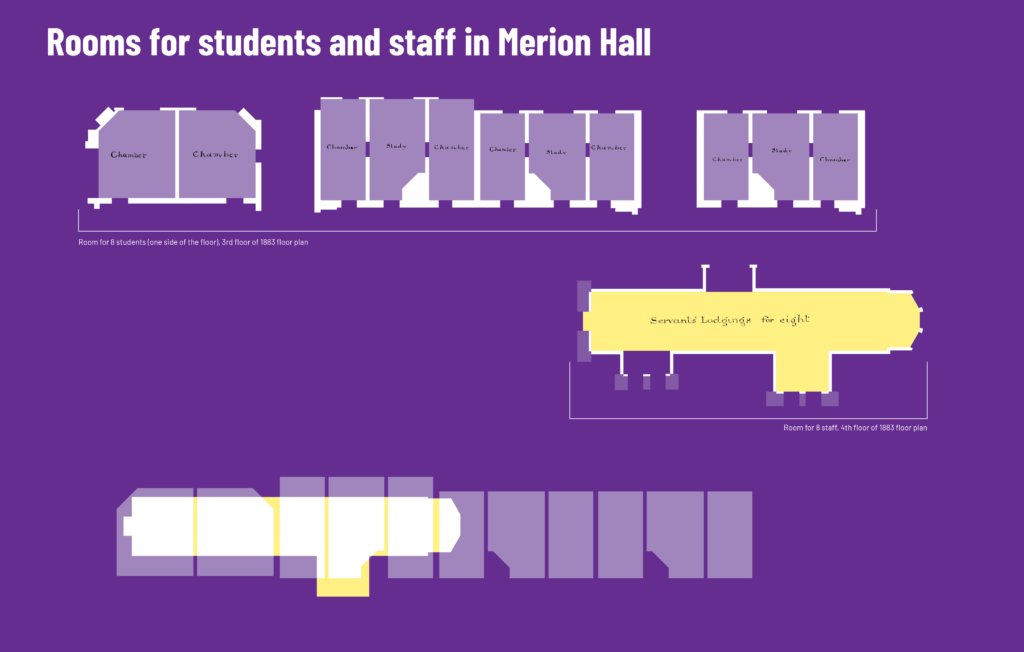While the Bryn Mawr administration took extreme care in providing for student health, other residents of the College did not receive the same consideration. Dormitory service staff’s lodgings were cramped, lacked privacy, and had small windows, which would have impacted both light and air circulation. This was especially straining in warm weather, when the upper floors of Merion Hall became hot and stuffy.
These conditions were not only uncomfortable, but also potentially unsafe. When Bryn Mawr opened, the infirmary was located on Merion’s fourth floor, adjacent to service staff’s lodging. This proximity put them at greater risk of contracting illness. Moreover, the service staff were expected to care for ill students, delivering them meals and nursing them to health, without additional compensation.

“As the three windows in the chamber [on the fourth floor of Merion Hall] designed for the use of the domestics are too small, the building committee was authorized to have them enlarged if it could be done with reasonable outlay.”
Minutes of the Meeting of the Bryn Mawr College Board of Trustees, November 28, 1883, 83. Bryn Mawr College Special Collections, College Archives.
With growing understanding of how disease spread, ventilation was considered to be of utmost importance, yet the Board of Trustees hesitated to improve the circumstances of staff lodging because of financial concerns.
